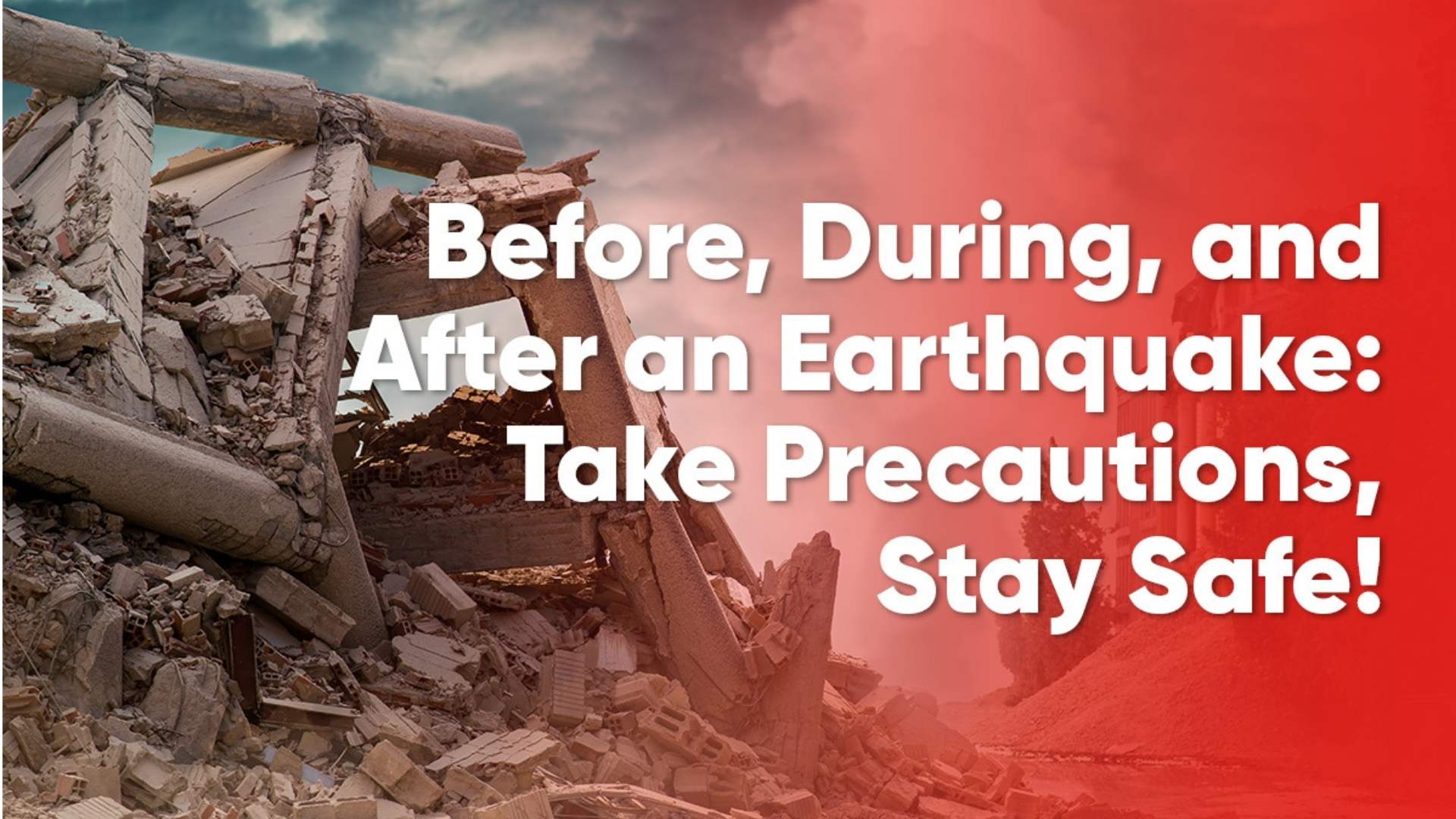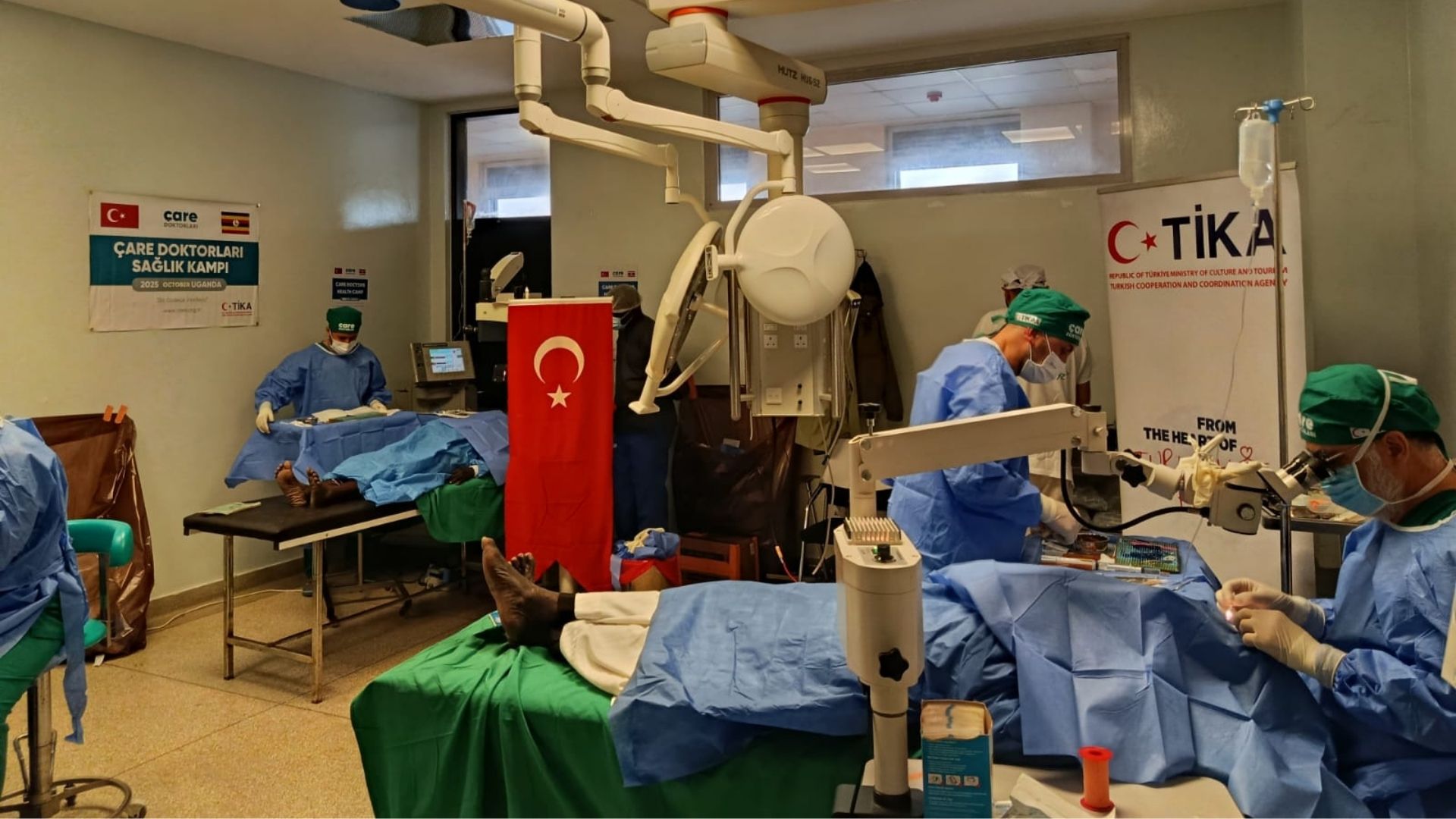
Before, During and After Earthquake
27.08.2024: 13:39Earthquakes cause more loss of life and property when precautions are not taken. Well, do you know what precautions you should take before, during and after the earthquake?
Before Earthquake;
- Repair damaged electrical wiring and plumbing connections that may leak gas. These are potential sources of fire. Get professional help in this regard; Do not work on electrical and gas installations yourself.
- Use flexible plumbing materials to prevent water and gas leaks. Flexible materials are more resistant to breakage.
- Fix your water heater (combi/heater/water heater), refrigerator, oven and gas equipment to the wall and/or floor with suitable materials.
- Store herbicides, insecticides and flammable/combustible materials in closed cabinets with locks and on lower shelves.
- Practice the Crash-Track-Hold movement with your family in order not to make the wrong moves that will increase the existing risks at the time of the earthquake.
- Before the earthquake, do not change the design of your building to prevent possible loss of life and property. The collapse of load-bearing columns and walls makes your building unsafe.
In the Time of Earthquake;
- Stay away from glass, windows, outward-facing walls and doors, and any objects that might fall on you, such as lighting fixtures or fixtures.
- Do not run towards stairs or exits. Do not try to leave the building during the shaking.
- If you are in an open area outside the building; Move away from power lines, other buildings, poles, trees, and under walls.
- If there is a jolt while driving on the highway and your location is safe (by avoiding standing near buildings, trees, poles, under an overpass), you should approach to the right without blocking the road.
After Earthquake
- When the shaking stops, look around and make sure of your surroundings and your own safety, then leave the building.
- If you smell gas, turn off the gas valve, open the windows and doors, and leave the building immediately.
- After the shaking is over, take your disaster and emergency bag and go to the assembly area.
- After the shaking has passed, turn off the electricity, gas and water valves; turn off stoves and heaters.
- If you are at the seaside, move away from the beach to as high a place as possible against the danger of tsunami.
- In the first 72 hours after the earthquake, prepare a disaster and emergency kit where you can keep your urgent needs and valuable documents until the relief teams reach you.
- Try to support babies, children, the elderly, disabled and pregnant women who may need help after the earthquake. Meta: Earthquake causes more loss of life and property if precautions are not taken. So, do we know what precautions to take?
Source: AFAD
Son Yazılar
Desteklerinizle Uğurladığımız İyilik Gemisi El-Ariş'e Ulaştı
06.11.2025: 00:45
Söz Verdik, Geldik! Çare Doktorları Uganda'da Şifaya Başladı
06.11.2025: 00:42
Çare Derneği'ne Anlamlı Ziyaret: Fatma Betül Sayan Kaya
06.11.2025: 00:38
Çare Derneği Gazze 17. İyilik Gemisi'nde
06.11.2025: 00:37
Çare Derneği'nden Kaymakam Yüksel Kara'ya Vefa Ziyareti
06.11.2025: 00:36














































